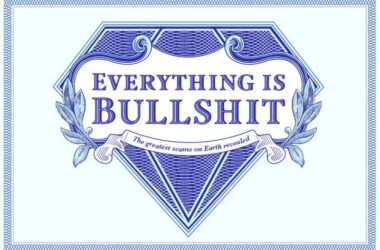As it usually happens, what my friend @jackdanger tweets out quickly turns into food for thought, and eventually blog fodder:
I’ve noticed that as companies get bigger, small-company managerial norms → big-company exec exceptionalism.
— Allen Cheung (@allenmhc) March 14, 2021
Sometimes bigco execs have other things to do (write books, board meetings, etc.), but truth is most execs aren’t good people managers & that’s not what got them there.
The observation here is that the rules and expectations which can elevate someone from a lead, to a manager, and possibly to a director, don’t necessarily apply when trying to reach for VP and C-suite promotions. Specifically, the best practices of people management—things like 1:1s, timely and relevant feedback, being available for your team, etc.—are taught as table stakes for on the management ladder, but are seen as extraordinary feats of compassion when exhibited from those at the top. And honestly, this is in-line with my own experiences working for top company leadership.
Which then raises the obvious question: Why is that?
One perfectly reasonably explanation is what I wrote above, that executives never seem to have enough time and business priorities consistently override people ones. There’s also a complementary factor: managers and directors who report into an executive are often good at upwards management themselves and are expected to deal with people management issues on their own teams, such that execs don’t need to provide equivalent and sometimes redundant levels of support to their broader team. For instance, I rarely find the same effort put in reviewing performance by execs, compared to those below them in the org chart1.
Another contributing reason is that, at least for startups, founders don’t need and typically don’t have people management in their skillset2. They often put themselves in top executive roles within their functions, which mostly works until the company has to scale its teams and needs someone to take on that responsibility. I’ve commonly seen this pattern with Series B/C startups, who often keep the technical cofounder as a technology-focused CTO and look to hire a team-centric VP of Engineering. I’ve run across these opportunities now probably hundreds of times in the past several years, with recruiting agencies and headhunters looking for anyone with management experience from bigger startups.
The more cynical way to interpret this dynamic is to see the lack of attention paid to people-related matters as a condition that executives are Peter-Principled into. That is, it’s easier for incompetent leaders to fake it at the exec level, in large part because they’ve honed their skills in sideways and upwards management, and that can easily obfuscate any deficiencies in managing back downwards to their own teams. In the most cynical rendition, an exec who isn’t delivering can first cast blame on the people they inherited entering the role, buy more time in turning over their staff, and then leave for their next gig before the whole thing unravels3.
Perhaps the sad truth is, whatever the reasons that many—most—executives aren’t amazing people managers, they still lead companies that end up being plenty successful. I’d surmise that there’s little correlation or causation between business success and excellence in people management. They’re likely good managers of the business almost by definition, although management books will sell the idea that the two types of management are in fact synonymous. In fact, while there are plenty of lists that recommend these types of books to enthusiastic leads, managers and directors looking for secrets to advance to that next level4, what executives actually read ends up being a broad range of intellectual topics. Which are definitively not about how they can be better managers.
If it makes you feel any better, I’ve heard that there’s rarely any guidance when someone reports to the CEO, and that C-level execs are expected to simply execute, hence the title.↩
Unfortunately, there are also plenty of founders who exhibit irrational confidence in their people management capabilities, and are oblivious to the actual feedback from their teams. I often mentor their reports through Plato.↩
That said, I do wonder if this is more theoretical than actual, since executive candidates will be reference checked and burning bridges via incompetence feels unsustainable.↩
To be clear, I count myself among that group, as I’ve read a bunch of them and they’ve become somewhat of a guilty pleasure.↩



